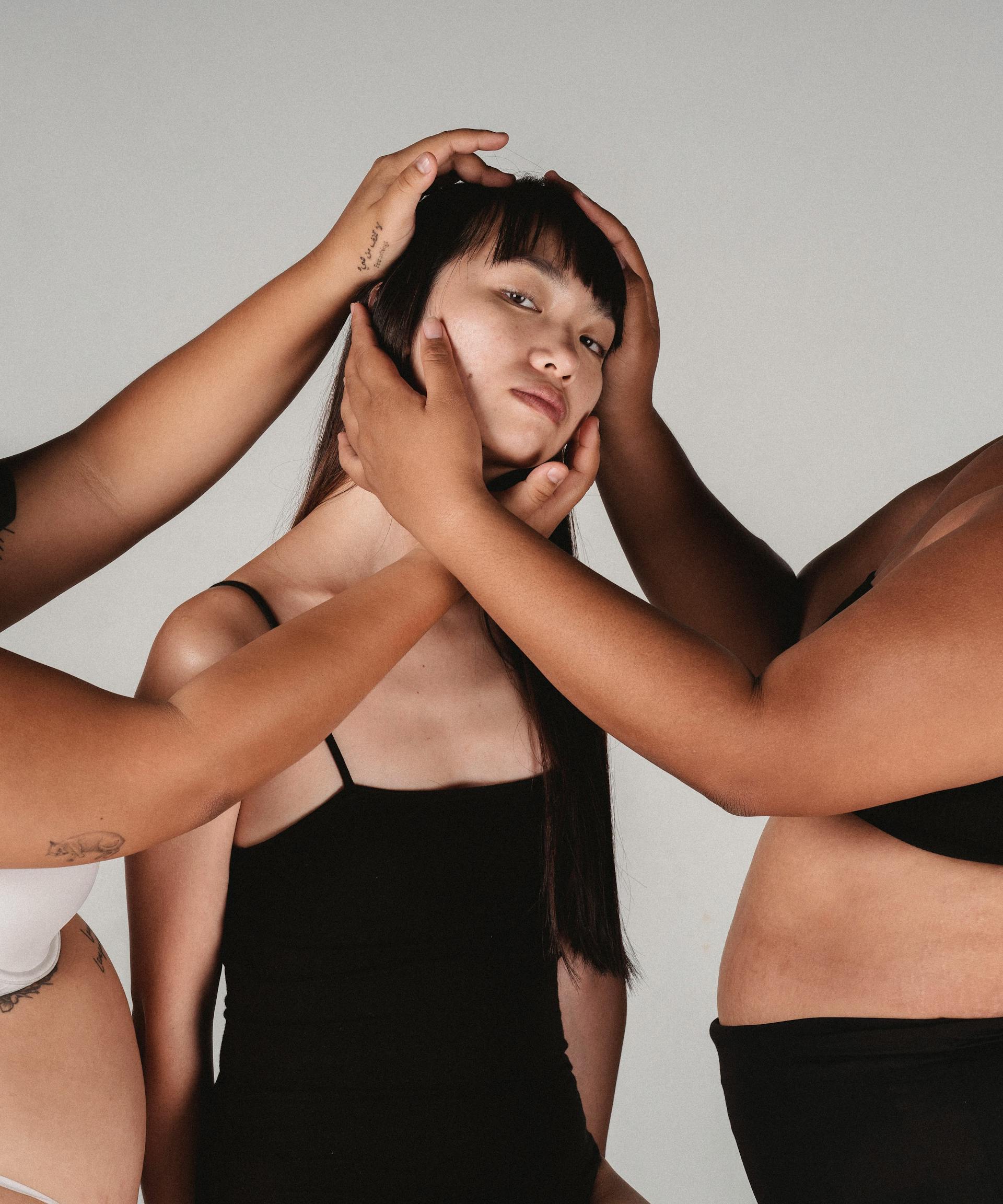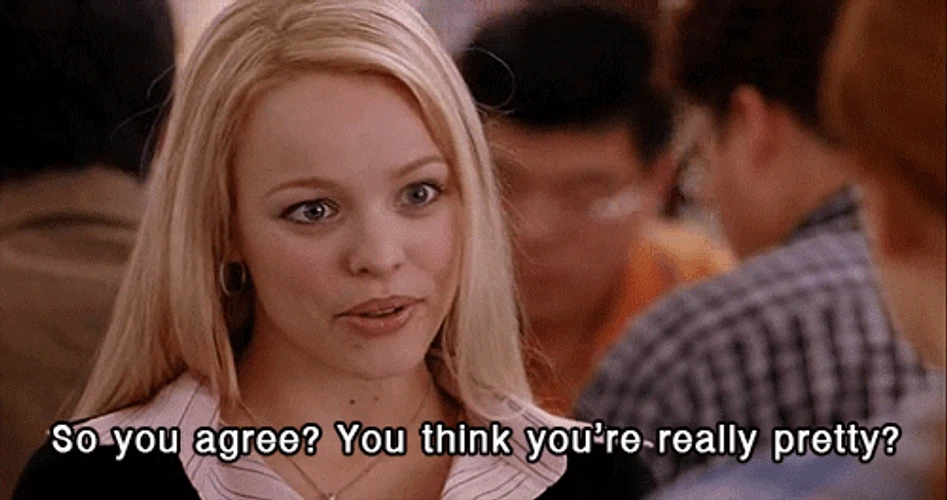The Reason Why Women Aren't Interested In Fighting The Body Positivity Movement
Could the lack of resistance against the body positivity movement have to do with toxic femininity?

In Bill Burr’s Netflix special Live at Red Rocks, he explores the ways in which women exhibit rivalry in intrasexual competition (the struggle between members of one sex to increase their access to members of the other sex as sexual partners). “You [women] are so into destroying each other. I see all the sneaky sh*t you do,” he says.
“Ladies, if you could just support the WNBA the way you support a fat chick who’s proud of her body and no longer a threat to you, that league would be doing better numbers than the NBA,” he jests. During the bit, he also mimics women, saying: “Oh my god, you’re a goddess, you’re gorgeous. You look great in that bikini, I’d kill myself if I looked like that. Keep eating, keep eating, lose a toe, you fat b*tch.”
Although this is clearly a comedy bit, it does raise some valid questions. Like, do some women, in their darker moments, choose not to discourage their friends from gaining weight, so women can eat their way out of the competition? As it turns out, there is a bit of truth behind Bill Burr’s bit.
The Body Positivity Rivalry Theory
This rivalry theory between women is also something Chris Williamson has discussed on his podcast with Louise Perry and with Douglas Murray.
During his conversation with Douglas Murray, Murray expressed how he believes men are guilty of this kind of behavior too. Murray describes a scenario, which he’s experienced himself, where a man may bump into an old friend – someone he isn’t particularly close to – who has gained some weight and finds some satisfaction in this. “I mean, you can’t say that there isn’t a slight sort of ‘ha ha, you’ll never guess, [so and so] has become fat,’” he says.
On the same topic, Williamson and Louise Perry discussed the haircut experiment, where some women recommended other women receive short haircuts in order to make those women less attractive to men. “Men love long hair. Like, I don’t think women understand how much men love long hair,” says Perry. By making other women have shorter haircuts, the women in the experiment knew very well they were sabotaging their competition.
The Haircut Experiment
Intrasexual competition between women is often covert and targets rivals’ appearance. Although these attacks are subtle, it seems some women are aware of how other women may try to sabotage their appearance.
Last year, a viral trend took TikTok by storm where women were warning others about this exact kind of sabotage. Some said they’d block a friend who told them to cut their hair short, others simply called that “friend” a snake.
Now, there’s even a study backing this theory up. According to a study published in 2023, highly competitive women are more likely to recommend other women receive shorter haircuts, possibly to diminish the physical attractiveness of their rivals in the dating world.
The study involved 450 participants who were presented with hypothetical salon clients. The participants were given a portrait image of these hypothetical clients (all varying in attractiveness), a close-up image of the client’s hair (described as in either good or bad condition), and the client’s preference for how much hair to cut off (either as little hair as possible or as much hair as necessary). The participants’ role was to recommend how much hair they would cut off each client.
The results were quite revealing. The researchers discovered that women who reported higher levels of intrasexual competitiveness were more likely to recommend the clients cut more hair off when the hair was in good condition and the clients expressed a preference for minimal cutting.
Not only that, but the researchers also found that the participants advised clients of similar attractiveness as themselves to cut off the most hair. However, the study didn't show the participants targeting women of higher attractiveness. The theory behind this is that highly attractive individuals don't pose a significant threat as they likely have access to high-quality mates already. But by targeting women of similar attractiveness, the participants could diminish "horizontal competition." This is when individuals compete with others of similar attributes or qualities.
“What seems like it might be a flippant topic to study, hairdressers cutting off too much hair, is actually quite serious,” says Danielle Sulikowski, a senior lecturer at Charles Sturt University and study author.
“The hairdresser scenario is just a vehicle for asking questions about how women sabotage each other in subtle, barely detectable ways,” Sulikowski continues.
From Haircuts to Body Positivity
The haircut study is just one example of how women compete with one another to find a partner. Although things may be different in a real-life scenario, it’s fair to conclude that the reason behind recommending short hair could be a way to sabotage rivals.
Although it hasn't been researched, a partial reason for the encouragement of unhealthy body weights may be another form of female aggression in intrasexual competition. And a lot of women may be engaging in this kind of behavior without being entirely aware of what they’re doing.

According to research from the University of Colorado Boulder, excess weight or obesity accounts for one in six deaths in the United States. Yet still, the body positivity movement seems to prevail in convincing overweight women that their bodies are beautiful and healthy.
Moreso, the fight against obesity and the body positivity movement appears to be one of the only fights against wokeism and progressive feminism that doesn’t have large numbers of women speaking out against it. Perhaps instead, subconsciously or not, women are choosing not to tell other women the truth because it helps diminish their competition in the sexual marketplace.
It’s fair to say that calling another person “fat” can cause upset, and many women may not want to tell their overweight friend the truth because of how it may make their friend feel. However, it’s far worse to allow your friend to live an unhealthy lifestyle that will affect her health and dating prospects.
Instead, deliver the truth in a caring, compassionate way, helping them to change for the better. Rather than focussing on how she looks, focus on the negative health aspects of being overweight. Maybe you could even suggest going to a gym class together or for a walk every Sunday – she may just need support to get into a good routine. If you were in her position, I’m sure you’d want your friend to tell you the truth.
Closing Thoughts
Females don't typically exhibit aggression the same way men do. Women tend to engage in reputational damage, such as spreading rumors, telling lies, and making malicious allegations against other women. The result of these subtle yet aggressive behaviors can ruin livelihoods, marriages, relationships, and friendships, so they shouldn’t be dismissed as harmless.
Evie deserves to be heard. Support our cause and help women reclaim their femininity by subscribing today.